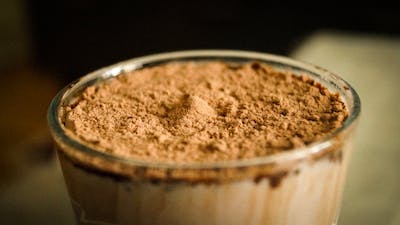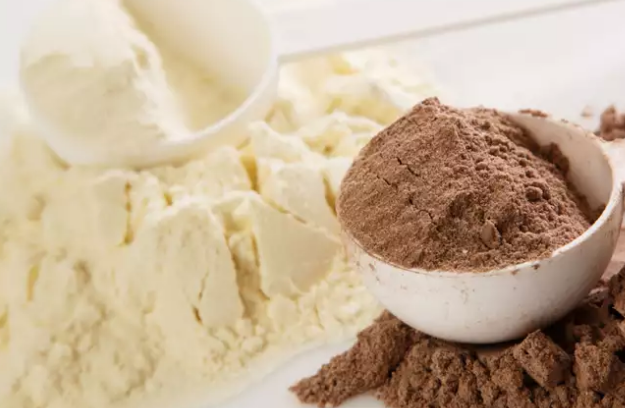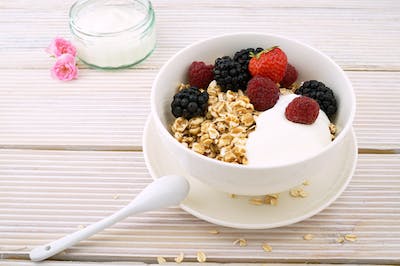Protein Supplements: A Strategy for Satiety and Weight Management

Introduction
In the realm of nutrition and weight management, protein has emerged as a key player in promoting satiety, aiding in weight loss, and supporting overall health. The utilization of protein supplements, including popular choices like whey and plant-based alternatives, has gained traction as a convenient and efficient means of enhancing one’s protein intake while managing calorie consumption.
Protein’s role in inducing satiety is rooted in its complex metabolic effects. Unlike carbohydrates and fats, protein requires more energy and time to digest, leading to a prolonged feeling of fullness. Moreover, protein stimulates the release of hormones like peptide YY (PYY) and glucagon-like peptide-1 (GLP-1), which contribute to reduced appetite and increased satisfaction. By including protein-rich supplements in their diets, individuals can potentially curb overeating and make better choices in terms of portion control and snacking.
For instance, a study published in the “Nutrition Journal” in 2011 examined the impact of a whey protein supplement versus a carbohydrate-rich drink on appetite. Participants who consumed the whey protein supplement exhibited significantly lower levels of ghrelin, the hunger hormone, indicating a greater sense of fullness compared to those who consumed the carbohydrate drink.
Plant-based protein supplements, often derived from sources like peas, soy, or rice, offer an excellent alternative for individuals following vegetarian or vegan diets. These supplements provide a complete amino acid profile, ensuring that individuals obtain all the necessary building blocks for muscle maintenance and repair without relying solely on animal-based proteins.
It’s important to note that while protein supplements can be a valuable tool in managing appetite and promoting weight loss, they shouldn’t replace whole food sources entirely. A well-rounded diet that includes lean meats, fish, dairy, legumes, nuts, and whole grains contributes to overall nutritional balance. Additionally, the quality of protein supplements varies, so it’s advisable to choose reputable brands that provide accurate nutritional information and minimize unnecessary additives.
12 Protein Supplements
for Weight loss
Embarking on a journey towards weight loss often involves strategic dietary choices, and protein supplements stand as valuable allies in this endeavor. These 12 protein supplements have garnered attention for their potential to assist in shedding pounds. From the fast-digesting efficiency of whey protein to the plant-based benefits of pea protein, each supplement offers a unique approach to enhancing satiety, supporting muscle preservation, and curbing overeating. By harnessing the power of these protein supplements, individuals can optimize their weight loss strategies while ensuring their nutritional needs are met.
1. Whey Protein

Whey protein is a fast-digesting protein derived from milk during the cheese-making process. It contains all essential amino acids and is rich in leucine, which supports muscle protein synthesis. Its rapid absorption makes it ideal post-workout to enhance recovery and satiety.
2. Casein Protein

Casein is another milk-derived protein but is slow-digesting. It forms a gel-like substance in the stomach, providing a steady release of amino acids over time. This sustained release helps control hunger and is often consumed before bedtime to promote muscle recovery during sleep.
3. Pea Protein

A popular plant-based option, pea protein is rich in branched-chain amino acids (BCAAs) and is easily digestible. It’s hypoallergenic and suitable for those with dairy or soy allergies. Pea protein helps maintain muscle mass and supports weight loss by promoting fullness.
4. Soy Protein

Extracted from soybeans, soy protein boasts a comprehensive array of essential amino acids. It contains compounds called isoflavones that may have additional health benefits. Soy protein helps control appetite, making it a useful tool for weight management.
5. Hemp Protein

Hemp protein is sourced from hemp seeds and provides a balance of essential fatty acids, fiber, and protein. It’s also rich in minerals and vitamins. The fiber content aids digestion and helps regulate blood sugar levels, contributing to satiety and weight loss goals.
6. Rice Protein

Rice protein is hypoallergenic and easily digestible, making it suitable for various dietary preferences. It’s rich in cysteine and methionine, important for muscle growth and antioxidant support.
7. Egg White Protein

Egg white protein is cholesterol-free and low in fat while being high in quality protein. It’s an excellent option for those seeking a lean protein source for weight management.
8. Collagen Protein

Collagen protein is derived from animal connective tissues and is known for its role in promoting skin, joint, and gut health. While not a complete protein, it can still contribute to overall protein intake and support weight loss through improved satiety.
9. Multisource Blends
Some supplements combine various protein sources, such as whey, casein, and plant proteins. These blends offer a diverse amino acid profile, ensuring sustained protein availability and supporting muscle recovery and weight loss efforts.
10. Mixed Plant Proteins
Blends of plant proteins from sources like brown rice, pea, and quinoa offer a comprehensive amino acid profile. These mixes cater to vegans and vegetarians, providing a variety of nutrients to aid in weight loss and overall health.
11. Lentil Protein

Lentil protein, sourced from lentils, provides a good amount of fiber and essential amino acids. It supports digestive health, reduces hunger, and contributes to muscle maintenance during weight loss.
12. Greek Yogurt

While not a traditional supplement, Greek yogurt is a protein-rich dairy product. It’s loaded with probiotics for gut health and provides a satisfying snack option that aids in weight loss by curbing cravings and promoting fullness.
These additional protein supplements offer a range of benefits that support weight loss efforts, from muscle preservation to appetite control. Incorporating these options into a balanced diet can help individuals achieve their weight management goals more effectively.
Conclusion
Protein supplements offer a practical way to increase protein intake, thereby supporting weight loss efforts by promoting fullness and reducing calorie consumption. By incorporating these supplements thoughtfully into a balanced diet, individuals can harness the benefits of protein while working towards their weight management goals.
One Response